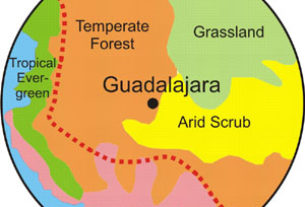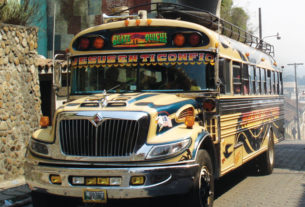O.K. I admit it! I love ‘dichos’ (sayings or proverbs). Not, ‘nachos’ or ‘ponchos’, but dichos! Yes, those little nuggets of folk wisdom distilled down through generations of wise Mexicans.
O.K. I developed a taste for sayings in English even before I found their equivalent in Spanish. You know the ones your mom told you, like; “a bird in the hand is worth two in the bush.” That sort of saying. When small, I really tried hard to catch that bird in the bush! Before finally giving up and realising the truth in such a strange saying.
So when I found this dicho in Spanish: “más vale un pájaro en mano, que cien volando”
(A bird in hand is worth more than one hundred in flight)
I started to collect them.
Dichos (aphorisms or proverbs) are found in all cultures. They express universal truths in just a few words, easily remembered, and they strengthen our ties to our own culture by reminding us where we came from. These verbal treasures help to give a culture its richness.
Dichos are more honest, accurate and wise than any one of us because they have travelled through the soothing whisperings of years. They can be relished, memorised, quoted in Spanish and English, tested on friends, and finally evaluated in one’s own life. They are meant to put us in our place and then console us as we feel the weight of mortality, we, this generación de mocosos (generation of snifflers) who seldom listen to our elders. Now we live up to the proverb:
“El muchacho malcriado dondequiera encuentra padre”
(The ill-mannered child finds a father wherever he goes)
Proverbs are like gospel teachings. Like the church, Dichos offer a sort of sanctuary, a place we can always return to. Perhaps that’s why they maintain such a strong hold on us throughout life.
Religious sayings include ones like the English proverb, “As ye sow, so shall you reap.” In Spanish, they say:
“El que la hace, la paga. Quien mal anda, mal acaba”
A dicho stating in no uncertain terms that a life lived badly will end badly!
Or
“Dios no dio alas a los alacranes”
(God did not give wings to scorpions)
Or
“Es más facil que entre un elefante por el ojo de una aguja que un rico a la gloria”
(It is easier for an elephant to pass through the eye of a needle than for a rich person to enter paradise).
Mexican dichos are commonly used in the home by parents. Fathers can have one for every occasion. A Mexican friend told me that his mother and grandmother used them to emphasise an important point they felt they were not qualified to talk about on their own. Qualified or not, I certainly know that a few good Spanish dichos would be useful in the raising my three kids.
For example when they start telling me little lies, I could say:
“Todo es que des el primer mal paso y de ahi en adelante son puros tropezones”
(Just take the first bad step and from then on, you’ll stumble).
When they make unsavory friends, I could say:
“Dime con quien andas y te dire quien eres”
(Tell me who your friends are and I will tell you who you are).
After the kids tire of me advising them to ignore rumours, I could sagely nod my head and say in English: “No smoke without fire.” Then if there is some truth to a rumour discovered, I can exclaim,
“Cuando el rio suena es que agua lleva”
(When the river sounds, water is running”) Thus covering both of my bases!
Or when life’s challenges seem overwhelming:
“Al mal paso darle prisa”
“To a bad step, rush it!” Just like the kids say today, “Get over it!”
Or later on when they buy that first house:
“Buen abogado, mal vecino”
(A good lawyer, a bad neighbour).
Or go to Vegas or play the lottery
“Con paciencia y un ganchito, hasta una fortuna se alcanza”
(With patience and a little hook, even a fortune can be obtained).
With the 20/20 hindsight that comes with age, I believe now that I could have started my children young with this wealth of Spanish dichos. On summoning the family to the supper table, I shout,
“A comer y a misa, a la primer campana”
(To dinner or mass, to the first bell call)
Perhaps if I had started using Spanish dichos when my children balked at eating something they didn’t like.
“Esta bien, entre menos burros, mas elotes”
(Among fewer burros, there will be more corn).
Quién sabe! (Who knows?) They just might have fallen for it!
Got a taste for dichos too? Then try looking at the following books:
And if you find a dicho that you really like and wish to share; please send it along to me.
Reference books
Octavio Ballesteros “Mexican Sayings: The Treasure of a People” (Dichos Mexicanos: El Tesoro de un Pueblo), published by Eakin Press of Austin.
Susana de Wiggins “100 Refranes, 100 Verdades” (100 Proverbs, 100 Truths)
Jeff Sellers “Folk Wisdom of Mexico”
Walk the Walk, Talk the Talk – Series Index


